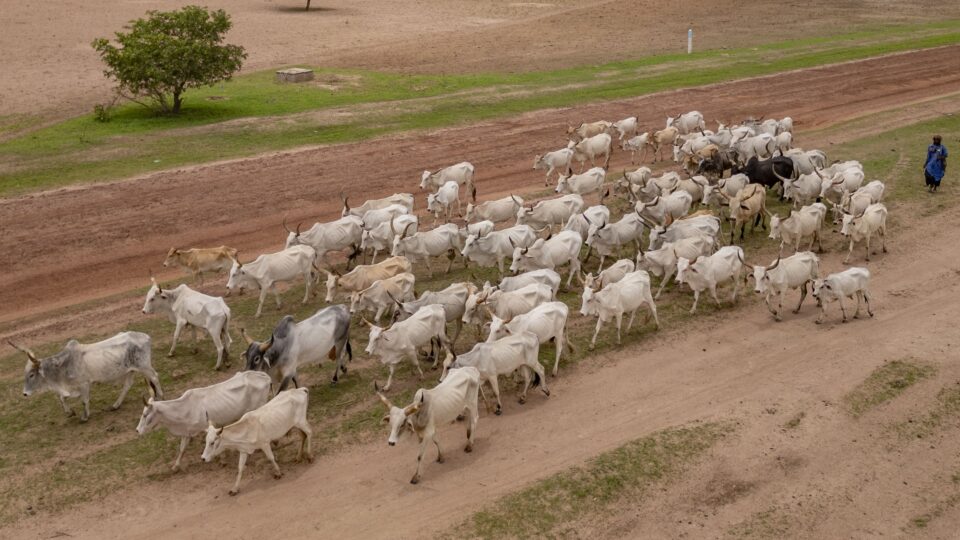African ministers of livestock and agriculture are taking bold steps to reshape the continent’s food systems. At the African Food Systems Forum in Dakar, Senegal, thirteen countries participated in the first-ever ministerial deep dive on livestock, co-hosted by the International Livestock Research Institute (ILRI), AU-IBAR, and GIZ. The session marked a historic shift, placing livestock and animal-sourced foods at the heart of Africa’s food systems agenda.
Africa is home to 85% of the world’s livestock keepers yet produces just 2.6% of global milk, revealing a stark mismatch between potential and output. This low productivity forces the continent to rely on $50 billion in annual food imports, despite its vast livestock resources. Ministers agreed that this must change—not only to meet rising demand but also to secure livelihoods, reduce poverty, and address nutrition gaps. Projections indicate that meat demand could triple and milk demand double by 2050, making urgent transformation unavoidable.
Dr. Mabouba Diagne, Senegal’s Minister of Agriculture and Animal Resources, highlighted the challenge: “We produce only 400 million liters of milk, compared to countries like Kenya and Uganda producing over 2 billion liters annually. We rely too much on imports and need to increase productivity to address this gap.”
Appolinaire Djikeng, Director General of ILRI, emphasized that solutions already exist in Africa: “We must scale what works regionally, bridging science, policy, and practice. These solutions offer a triple win: meet rising demand for livestock products, improve livelihoods for more than 200 million African livestock farmers, and do so in an environmentally sustainable way.”
Youth employment was a key focus during discussions. Across Africa, young farmers are already leveraging technology—using digital ear tags for traceability, building poultry businesses, and managing forage enterprises. Ministers stressed the importance of transforming livestock from subsistence farming into viable business opportunities that attract youth and create careers. In Tanzania, for example, 235,000 young livestock entrepreneurs have been trained, with 150,000 now running their own enterprises.
Addressing productivity gaps remains critical. Uganda produces 3.4 billion liters of milk annually compared to Senegal’s 400 million, largely due to differences in cattle genetics. Ministers committed to scaling up genetic improvement programs to deliver higher-yield breeds. For farmers, the impact is immediate: when a cow produces 8 liters of milk instead of 2, household incomes rise, children can attend school, and nutrition improves. Genetic gains were identified as a priority pathway to boost farmer incomes within just two to three years.
The dialogue also highlighted the need to stop treating livestock separately from agriculture. Mali called for stronger crop-livestock-fisheries integration, while Somalia showcased its model of vaccinating 20 million animals and empowering women in value chains. Tanzania presented digital monitoring systems for herders. Across these examples, common themes emerged: integrated, resilient, and locally adapted approaches are essential for Africa’s livestock future.
Ministers concluded with a set of commitments aimed at bridging the gap between Africa’s current livestock efficiency (10–20% of global standards) and its potential:
-
Establishing feed banks to reduce seasonal shortages
-
Promoting regional cooperation to overcome fragmented markets
-
Scaling youth entrepreneurship to drive local production
-
Expanding genetic improvement programs to raise productivity
-
Holding annual livestock ministerial sessions at the Africa Food Systems Forum to ensure accountability
For Africa’s farmers, these commitments translate into practical, scalable solutions that can be adopted across borders, transforming livestock into a driver of economic growth and food security.
Dr. Huyam Salih, Director of AU-IBAR, emphasized the stakes: “Africa cannot achieve sustainable food security and agricultural transformation without placing livestock at the center of our development agenda. For millions of farmers, this is the difference between poverty and prosperity, between subsistence and thriving agribusiness.”



